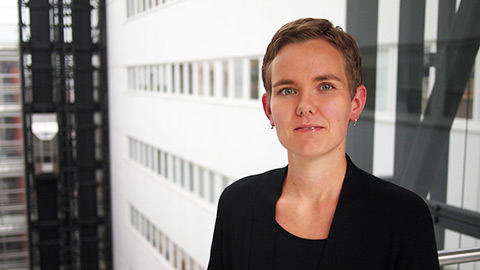Mathematics in support of diabetes research
Dr. Laura Elo, Adjunct Professor in Biomathematics at University of Turku, has received a five-year Career Development Award from JDRF, the world’s leading charitable funder and advocate of Type 1 diabetes research.

The research of Dr. Elo aims at developing and applying computational methods to identify early molecular markers that can be used to predict Type 1 diabetes, before the disease can be diagnosed by currently available tools.
JDRF, the world’s leading charitable funder and advocate of Type 1 diabetes research, has awarded a five-year Career Development Award to Dr. Laura Elo, Adjunct Professor in Biomathematics at the University of Turku. The total sum of the award is up to 750,000 USD.
The research project of Dr. Elo is carried out in close collaboration with research projects at Turku Centre for Biotechnology and the Department of Pediatrics, University of Turku. To effectively utilize the unique experimental and clinical data collected in the collaborative studies, Dr. Elo focuses in her research on the development and application of computational methods and mathematical models.
The cause of Type 1 diabetes is not fully understood
Type 1 diabetes is an autoimmune disease that can be diagnosed in both children and adults, in which the body’s immune system attacks and destroys insulin-producing beta cells in the pancreas.
The cause of Type 1 diabetes is not fully understood, and while treatments have improved, there is no known prevention or cure for the disease. According to current knowledge, the disease development begins even years before the clinical signs of the disease, while the diagnosis is made only at a relatively late stage. Understanding the development of Type 1 diabetes and detection of early markers to predict the disease is important for developing early diagnostic tools and future therapeutic and preventive strategies.
Recent developments in biotechnologies have enabled large-scale measurements of molecular events to unravel disease mechanisms. At the same time, the amount of experimental data has exploded. The experimental measurements alone are, however, not sufficient for understanding the complex disease processes. Instead, their interpretation and utilization in medicine requires effective computational methods.
Multidisciplinary collaboration plays a central role
Mathematical modelling has become a central part of molecular biology and medicine as well as development of treatment and diagnosis strategies. Additionally, multidisciplinary collaboration plays a central role, of which a good example is the research of Dr. Elo jointly at the Department of Mathematics and Statistics, University of Turku, and Turku Centre for Biotechnology.
The city of Turku provides an excellent environment for leading diabetes research. The Finnish Type 1 Diabetes Prediction and Prevention Study DIPP, started in 1994 by Olli Simell, Professor of Pediatrics at University of Turku, provides a unique collection of follow-up samples from children with increased genetic risk for Type 1 diabetes. Genome-wide molecular measurements of these samples are ongoing in the research group of Professor Riitta Lahesmaa, Head of Turku Centre of Biotechnology.
Liisa Reunanan, EH